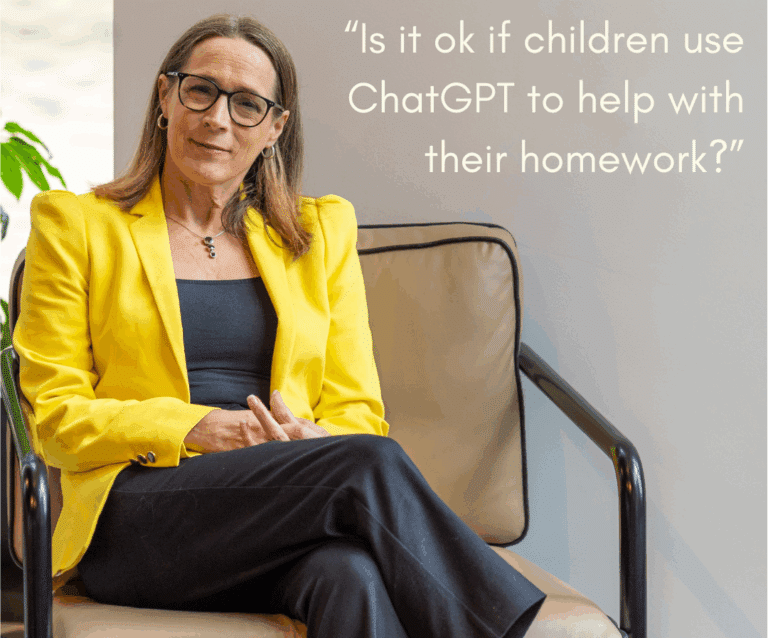Positive Parenting in the Digital Age
Concerns about managing children’s screen time and the impacts of technology on children’s wellbeing are high on the worry list for modern parents. But most advice on positive parenting seems to have been written in a golden age when wrestling iPads off children just wasn’t an issue. So how can modern parents adapt positive parenting techniques to help manage children’s tech time?
The problem with children using technology is that tech use tends to expand to fill all available time. That can displace many other valuable activities that are vital for children’s healthy development. Like running around. And face-to-face communication. And physical play.
Tech is an easy boredom-filler. But boredom is an essential driver in children’s development through which they learn creativity and self-sufficiency and new ways of interacting with their environment.
And it’s not just children’s use of technology that’s at issue. Digitally-distracted adults are less able to provide the connection, attention and eye contact that help children develop healthy brains and essential life-skills. Parents and children are now spending more time in each other’s physical proximity but we are talking to each other less.
How much tech time is too much tech time?
Rapid developments in technology are outstripping the pace of research so we don’t know for sure what the impacts of this will be on children’s development and health. The UK government currently offers no meaningful guidance on how much screen time is safe for children (see How much tech time is too much? for a summary of expert opinions). The health agency NICE suggests that screen-free days are a good idea and 2 hours a day of TV is enough for children and adults alike. But this advice seems rather outdated given the multiplying screens in our lives and the different uses to which we put them.
The most sensible response is to aim for a balanced childhood. Parents need to make up their own minds about exactly where to draw the lines around children’s use of technology bearing in mind:
- Not all tech use is equal – how much of your child’s screen time is passive consumption (eg watching TV) and how much is active and creative (eg making music or animations)?
- How does your child behave during and after screen time? Are they locked in? Angry at being dragged away? Or do they naturally walk away and build on the screen ideas in unplugged play?
- What are they doing with the rest of their time? Do they have non-tech hobbies and interests? Do they spend face-to-face time with friends? Do they get their recommended amount of daily exercise?
If you are feeling flummoxed, try keeping a tech diary for a week for every member of the family and see exactly how much time is being spent on different activities. (Be honest!)
Take a whole family approach
When it comes to positive parenting, the first rule is to be a good role model. Setting limits around technology is best done through a whole family approach (see Creating a mentally healthy family life). Teenagers will be the first to call you a hypocrite if you curtail their tech use while merrily checking your own phone. That means coming up with some ground rules that apply to everyone. Those rules might include:
- Screen-free places – eg no screens allowed in bedrooms (or upstairs in general) or in the car
- Screen-free times – eg no phones/screens during meals, no TV Monday-Thursday, tech-free Sundays or a tech-free hour before bedtime
You need to find rules that work for you and for your unique family circumstances. A family meeting is a really good way to agree ground rules with your children. You might also find these resources on social media and self-esteem useful.
Try and create distance between people and phones. Leave your phones at home on days out. Leave them in another room when you are at home so you can’t see that blinking light (or turn off app notifications so it blinks less!). And, rather than everyone retreating to their own devices and not talking to each other, think about having family-based tech experiences together such as family movie nights or computer game tournaments. Using tech together builds relationships and can promote communication.
Set limits…
There are lots of positive parenting strategies that can be applied to managing children’s screen time. Once you have set some ground rules, you need to watch out for children sticking to the rules – catch them being good and use descriptive praise to reinforce rule keeping. You might want to use a reward chart for younger children. Or write down the rules and formalise them into a behaviour contract for teenagers. Make sure you agree in advance the consequences for rule breaking.
You need to make sure that the limits you set are fair and can be monitored and enforced. If children make a fuss when you tell them their time is up, just ignore any protest behaviour. Giving in to protest will only result in more protest next time. A big part of being a parent is accepting that your decisions will often be unpopular with your child. Don’t get into a battle, remember to only ask twice and then follow through. If they resort to full-on tantrum behaviour, use a quiet time strategy. You could also use a reward chart to reinforce positive behaviour such as coming off tech nicely when asked.
Tech time can also be used as a reward for completing other non-techie activities. Set a small weekly or daily allowance of tech time that can be topped up through participation in sporting or educational activities or for completing household tasks or homework.
…and stick to them
Setting limits round tech definitely takes some effort on the part of parents. But the developmental benefits of a well-rounded childhood are huge. It is easiest to set boundaries when children are young and then gradually move them as they get older. Try to make conscious decisions about where to set limits rather than letting things drift. It is surprisingly easy to sleepwalk into a situation where your tween is on one digital device or another all day and night.
And don’t believe the kids when they tell you that ALL their friends have an Xbox in their bedroom. There will always be parents who make different decisions from you, that’s ok.
And, no, unlimited access to technology is not a human right!
READ NEXT: Are smartphones harmful to teens?







Leave a Reply